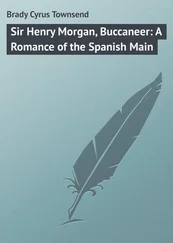Cyrus Brady - Commodore Paul Jones
Здесь есть возможность читать онлайн «Cyrus Brady - Commodore Paul Jones» — ознакомительный отрывок электронной книги совершенно бесплатно, а после прочтения отрывка купить полную версию. В некоторых случаях можно слушать аудио, скачать через торрент в формате fb2 и присутствует краткое содержание. Жанр: foreign_prose, на английском языке. Описание произведения, (предисловие) а так же отзывы посетителей доступны на портале библиотеки ЛибКат.
- Название:Commodore Paul Jones
- Автор:
- Жанр:
- Год:неизвестен
- ISBN:нет данных
- Рейтинг книги:5 / 5. Голосов: 1
-
Избранное:Добавить в избранное
- Отзывы:
-
Ваша оценка:
- 100
- 1
- 2
- 3
- 4
- 5
Commodore Paul Jones: краткое содержание, описание и аннотация
Предлагаем к чтению аннотацию, описание, краткое содержание или предисловие (зависит от того, что написал сам автор книги «Commodore Paul Jones»). Если вы не нашли необходимую информацию о книге — напишите в комментариях, мы постараемся отыскать её.
Commodore Paul Jones — читать онлайн ознакомительный отрывок
Ниже представлен текст книги, разбитый по страницам. Система сохранения места последней прочитанной страницы, позволяет с удобством читать онлайн бесплатно книгу «Commodore Paul Jones», без необходимости каждый раз заново искать на чём Вы остановились. Поставьте закладку, и сможете в любой момент перейти на страницу, на которой закончили чтение.
Интервал:
Закладка:
In another letter to Robert Morris he writes:
"There are no officers more immediately wanted in the marine department than commissioners of dockyards, to superintend the building and outfits of all ships of war; with power to appoint deputies, to provide, and have in constant readiness, sufficient quantities of provisions, stores, and slops, so that the small number of ships we have may be constantly employed, and not continue idle, as they do at present. Besides all the advantages that would arise from such appointments, the saving which would accrue to the continent is worth attending to. Had such men been appointed at the first, the new ships might have been at sea long ago. The difficulty now lies in finding men who are deserving, and who are fitly qualified for an office of such importance."
We are surprised at the clear insight of this untrained, inexperienced Scotsman, whom, by the way, I shall hereafter call an American. Most of his recommendations have long since been adopted in our own navy and other navies of the world. His conclusions are the results of his long and thorough professional study, his habits of application, his power of comprehension and faculty of clear and explicit statement. His observations would do credit to the most trained observer with large experience back of his observation.
Another curious letter to a former friend on the island of Tobago, written at this time, which deals with certain investments in property with balances due him from his various trading ventures, contains the following statement:
"As I hope my dear mother is still alive, I must inform you that I wish my property in Tobago, or in England, after paying my just debts, to be applied for her support. Your own feelings, my dear sir, make it unnecessary for me to use arguments to prevail with you on this tender point. Any remittances which you may be enabled to make, through the hands of my good friend Captain John Plainer, of Cork, will be faithfully put into her hands; she hath several orphan grandchildren to provide for."
All of which plainly indicates that, though a citizen of another country and the bearer of another name, he still retained those natural feelings of affection which his enemies would fain persuade us were not in his being.
While waiting at Boston for the purchase of the ships referred to, he was selected by Congress to command a heavy ship of war, a frigate to be called the Indien, then building at Amsterdam, which undoubtedly would be the most formidable vessel in the American service. This would be not only a just tribute to his merit, but would also solve the difficulty about relative rank, for he would be the highest ranking officer in Continental waters, and there could be no conflict of authority. He was directed to proceed at once to Europe to take command of this ship. The Marine Committee sent the following letter, addressed to the commissioners of the United States in Europe, to Paul Jones, for him to present to them on his arrival in France:
"Philadelphia, May 9, 1777 ."Honourable Gentlemen: This letter is intended to be delivered to you by John Paul Jones, Esquire, an active and brave commander in our navy, who has already performed signal services in vessels of little force; and, in reward for his zeal, we have directed him to go on board the Amphitrite, a French ship of twenty guns, that brought in a valuable cargo of stores from Messrs. Hortalez & Co., 4 4 A fictitious house, under the name of which the commissioners sent out military stores.
and with her to repair to France. He takes with him his commission, and some officers and men, so that we hope he will, under that sanction, make some good prizes with the Amphitrite; but our design of sending him is, with the approbation of Congress, that you may purchase one of those fine frigates that Mr. Deane writes us you can get, and invest him with the command thereof as soon as possible. We hope you may not delay this business one moment, but purchase, in such port or place in Europe as it can be done with most convenience and dispatch, a fine, fast-sailing frigate, or larger ship. Direct Captain Jones where he must repair to, and he will take with him his officers and men toward manning her. You will assign him some good house or agent, to supply him with everything necessary to get the ship speedily and well equipped and manned; somebody that will bestir himself vigorously in the business, and never quit it until it is accomplished.
"If you have any plan or service to be performed in Europe by such a ship, that you think will be more for the interest and honour of the States than sending her out directly, Captain Jones is instructed to obey your orders; and, to save repetition, let him lay before you the instructions we have given him, and furnish you with a copy thereof. You can then judge what will be necessary for you to direct him in; and whatever you do will be approved, as it will undoubtedly tend to promote the public service of this country.
"You see by this step how much dependence Congress places in your advices; and you must make it a point not to disappoint Captain Jones' wishes and expectations on this occasion."
At the same time the committee sent the following letter to Jones himself:
"Philadelphia, May 9, 1777 ."Sir: Congress have thought proper to authorize the Secret Committee to employ you on a voyage in the Amphitrite, from Portsmouth to Carolina and France, where it is expected you will be provided with a fine frigate; and as your present commission is for the command of a particular ship, we now send you a new one, whereby you are appointed a captain in our navy, and of course may command any ship in the service to which you are particularly ordered. You are to obey the orders of the Secret Committee, and we are, sir, etc."
The Amphitrite, which was to carry out Jones and the other officers and seamen to man the proposed frigate, was an armed merchantman. The French commander of the Amphitrite, however, made great difficulty with regard to surrendering his command to Jones, and even to receiving him and his men on board the ship, and through his persistent and vehement objections this promising arrangement likewise fell through. Jones continued his importunities for a command, however, his desire being then, as always, for active service. Finally, by the following resolutions passed by Congress on the 14th of June, he was appointed to the sloop of war Ranger, then nearing completion at Portsmouth, New Hampshire:
" Resolved , That the flag of the thirteen United States be thirteen stripes, alternate red and white; that the union be thirteen stars, white in a blue field, representing a new constellation.
" Resolved , That Captain Paul Jones be appointed to command the ship Ranger.
" Resolved , That William Whipple, Esquire, member of Congress and of the Marine Committee, John Langdon, Esquire, Continental agent, and the said John Paul Jones be authorized to appoint lieutenants and other commissioned and warrant officers necessary for the said ship; and that blank commissions and warrants be sent them, to be filled up with the names of the persons they appoint, returns whereof to be made to the navy board in the Eastern Department."
At last, having received something tangible, he hastened to Portsmouth as soon as his orders were delivered to him, and assumed the command. It is claimed, perhaps with justice, that his hand was the first to hoist the new flag of the Republic, the Stars and Stripes, to the masthead of a war ship, as it had been the first to hoist the first flag of any sort at the masthead of the Alfred, not quite two years before. The date of this striking event is not known.
It is interesting to note the conjunction of Jones with the flag in this resolution; an association justified by his past, and to be further justified by his future, conduct, and by the curious relationship in which he was brought to the colors of the United States by his opportune action upon various occasions. The name of no other man is so associated with our flag as is his.
Читать дальшеИнтервал:
Закладка:
Похожие книги на «Commodore Paul Jones»
Представляем Вашему вниманию похожие книги на «Commodore Paul Jones» списком для выбора. Мы отобрали схожую по названию и смыслу литературу в надежде предоставить читателям больше вариантов отыскать новые, интересные, ещё непрочитанные произведения.
Обсуждение, отзывы о книге «Commodore Paul Jones» и просто собственные мнения читателей. Оставьте ваши комментарии, напишите, что Вы думаете о произведении, его смысле или главных героях. Укажите что конкретно понравилось, а что нет, и почему Вы так считаете.












